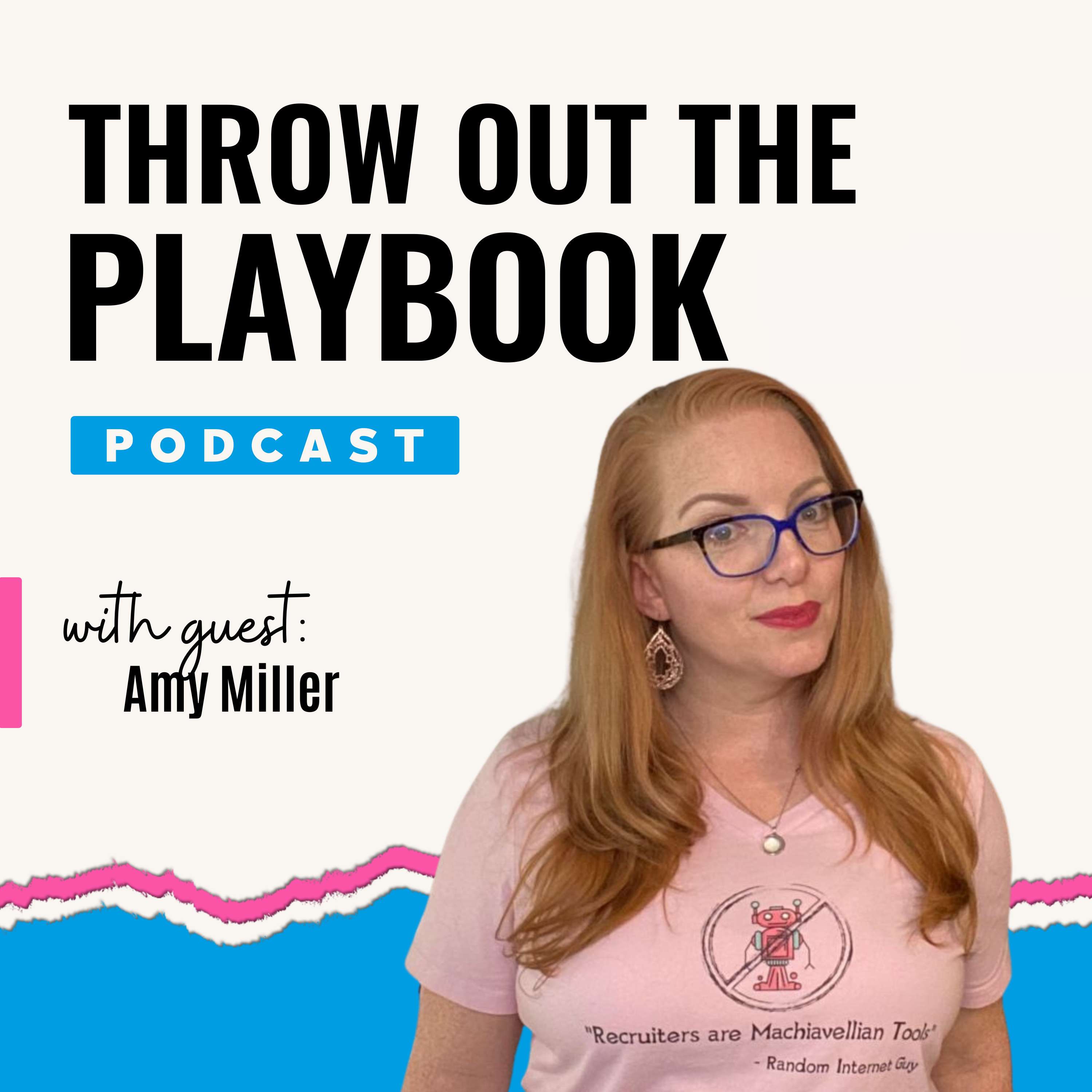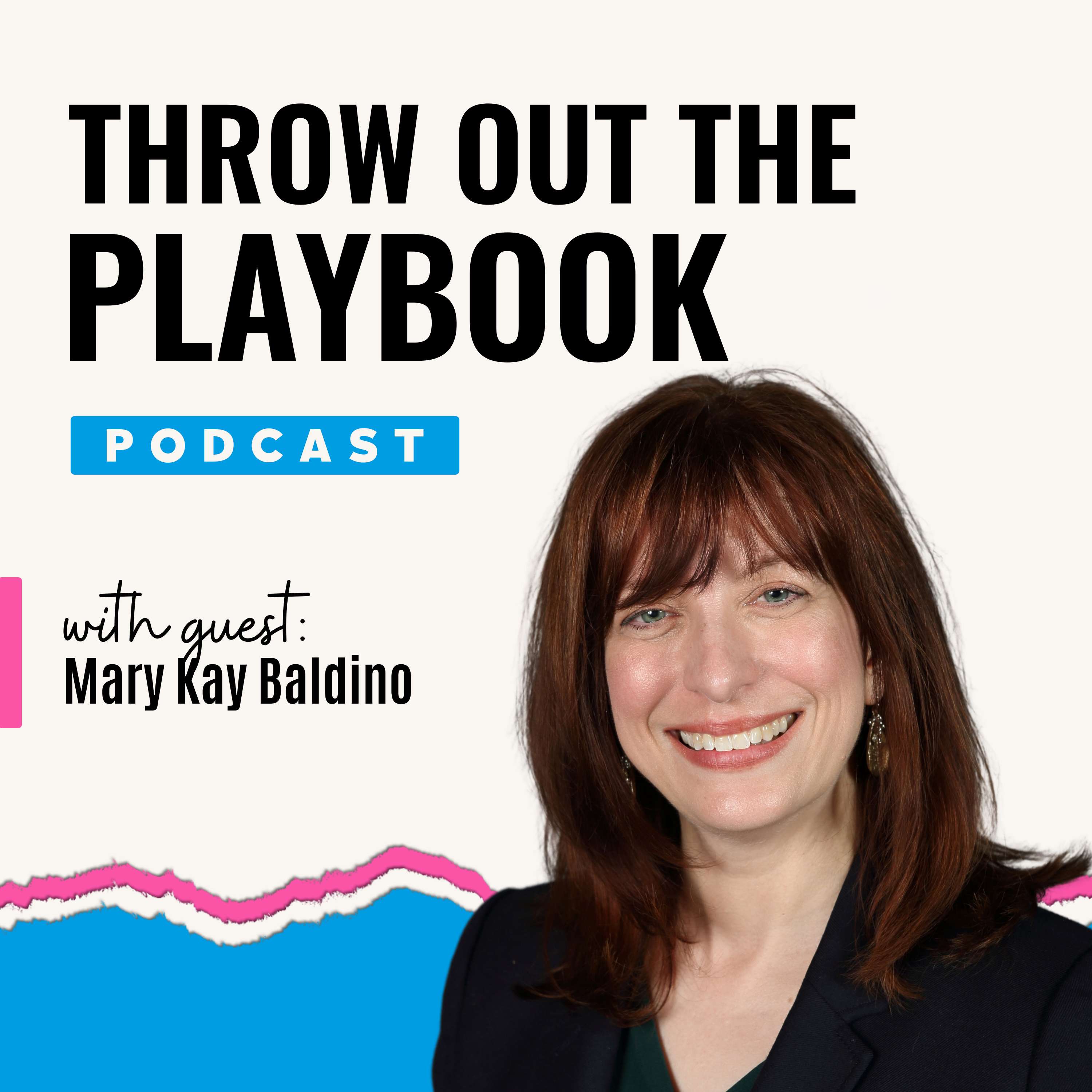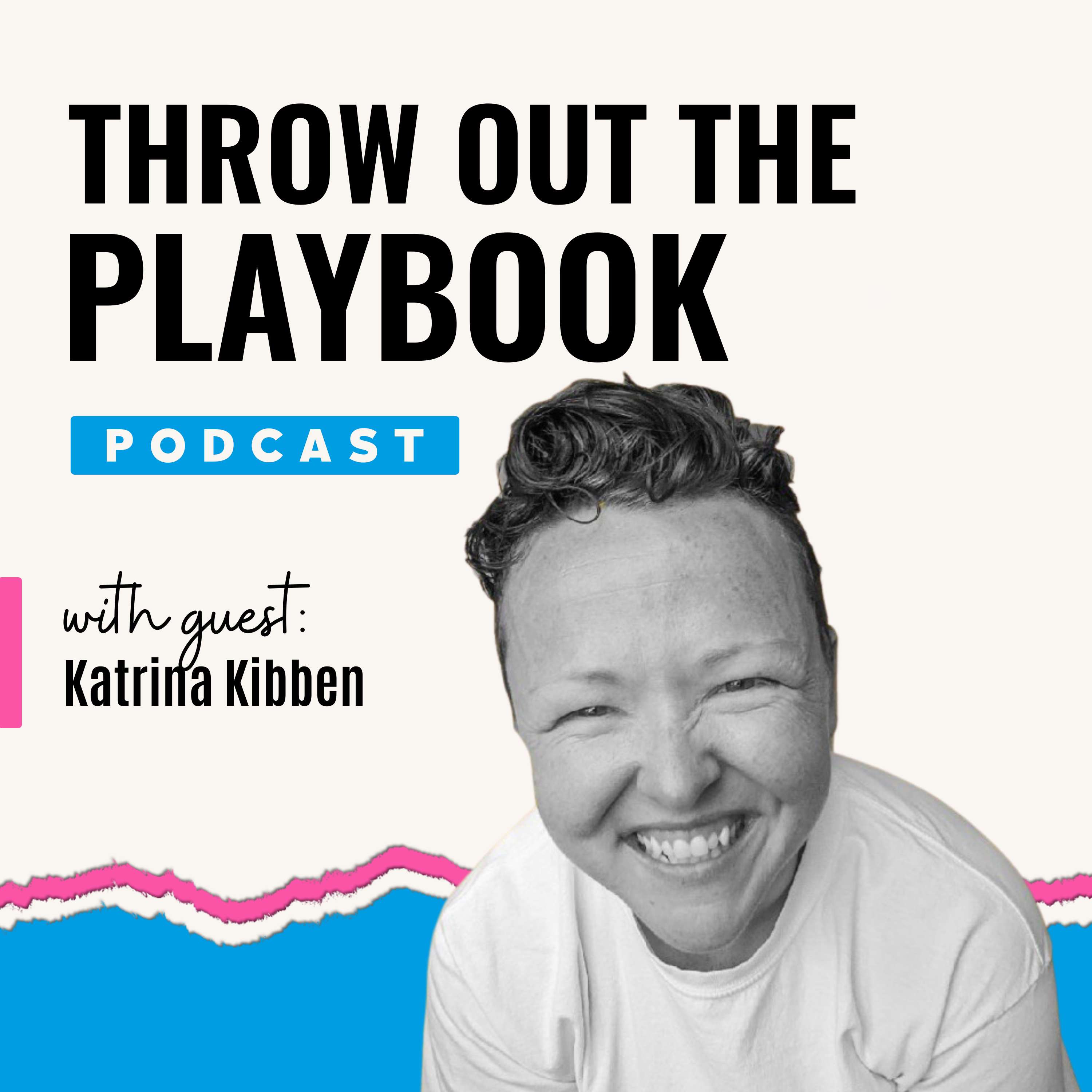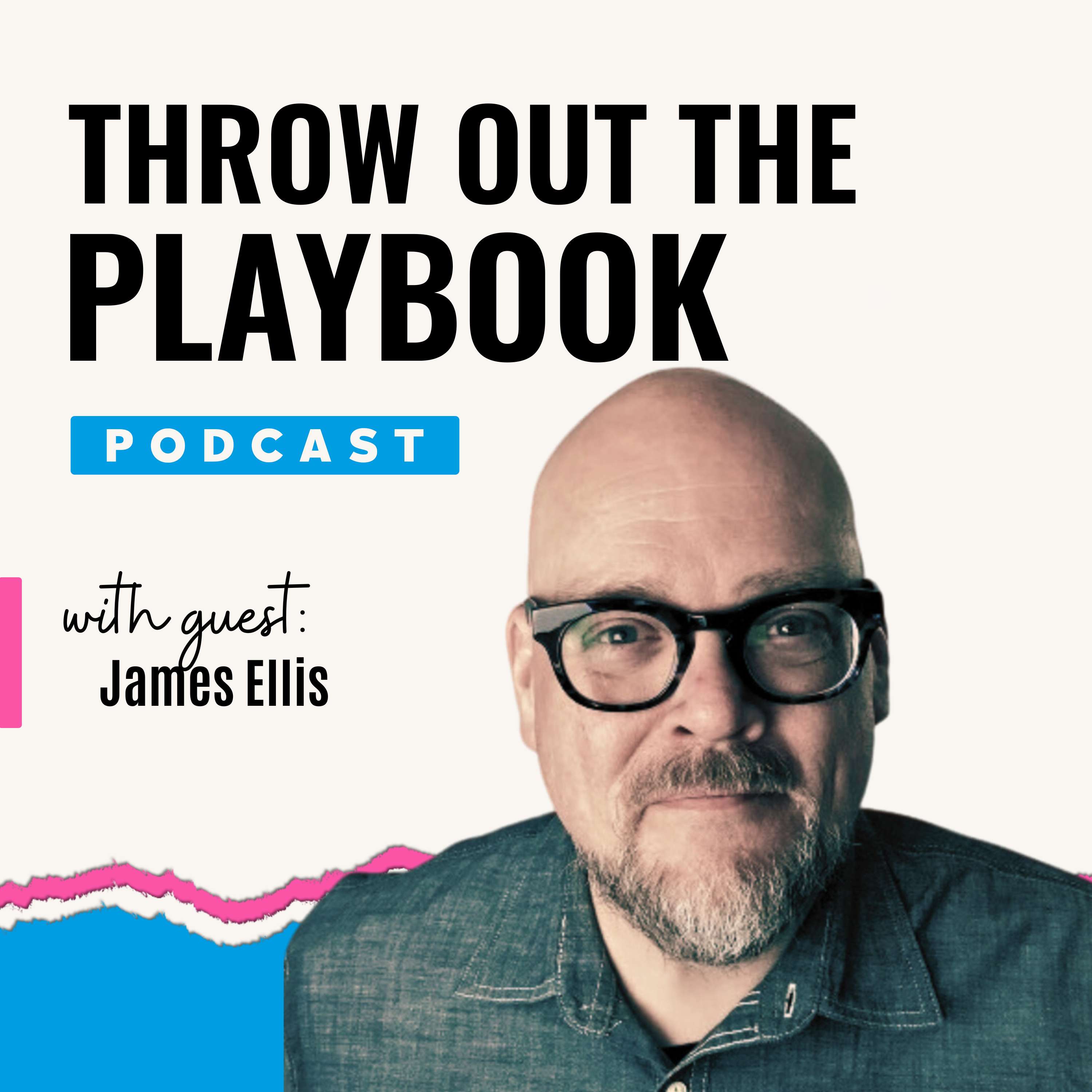#9: The Truth about Diversity Hiring - with Tara Turk-Haynes
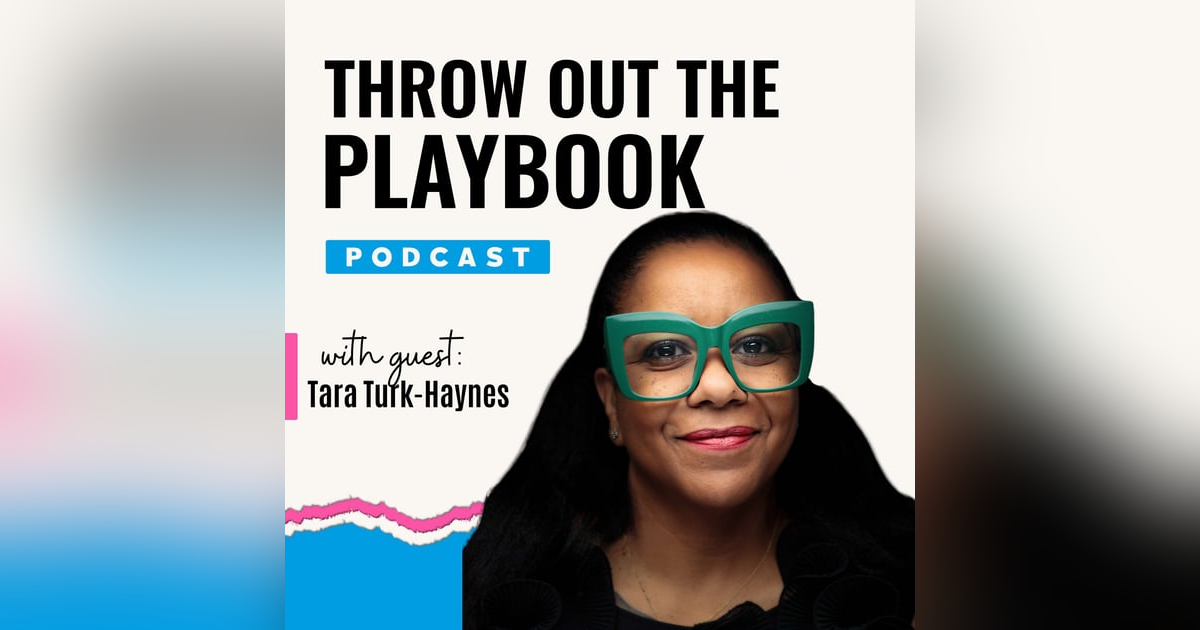
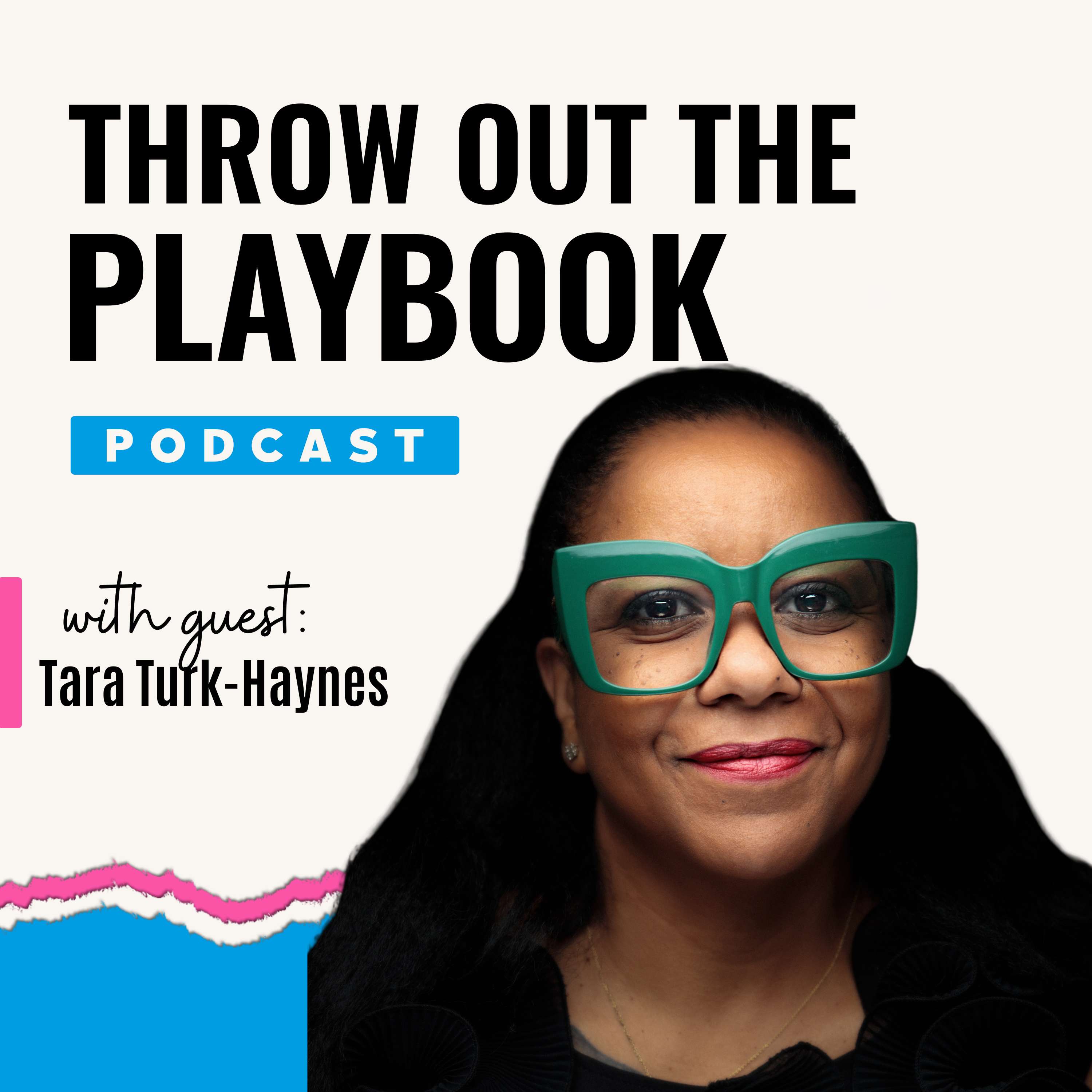
Tara Turk-Haynes, a DEI expert and TA Leader, discusses what it really takes to make diversity hiring work.
This episode is sponsored by Equity Activations
In this episode, Rhona sits down with Tara Turk-Haynes, a DEI expert and Talent Acquisition leader, for a candid conversation about what it really takes to make diversity hiring work. They discuss the importance of data, the role of ERGs, and the impact of societal and political factors on DEI efforts.
📬 Newsletter: https://link.rhonapierce.com/YZEviw
//TIMESTAMPS:
00:00 INTRODUCTION
02:16 - Tara's Journey into DEI Work
04:48 - Setting Clear Diversity Hiring Goals and Metrics
07:37 - Measuring the Success of Diversity Hiring Efforts
10:21 - Involving ERGs in the Hiring Process
16:15 - The Evolution of Tara's Thinking on Diversity Hiring
21:51 - The Skills-Based Nature of Recruiting and DEI
22:08 - Predictions for Diversity Hiring in 2024
26:17 - The Importance of Retention and Inclusion
RECOMMENDED NEXT EPISODE
→ #6: Inclusive Hiring Starts with Effective Intake Calls with Kat Kibben
****
🌟 CONNECT WITH TARA
💼 LinkedIn: https://www.linkedin.com/in/ttaraturkhaynes/
🐦 Twitter: https://x.com/ttarahaynes
🌐 Website: https://www.equityactivations.com/
📸 Instagram: https://www.instagram.com/ttarahaynes/
🌟 CONNECT WITH ME
💼 LinkedIn: https://www.linkedin.com/in/rhonabarnettpierce/
🐦 Twitter: https://twitter.com/rhonab
📸 Instagram: https://www.instagram.com/rhonabpierce/
🎵 TikTok: https://www.tiktok.com/@rhonabpierce
💜 Leave a review on Apple Podcasts
https://podcasts.apple.com/us/podcast/throw-out-the-playbook/id1740429498
🟢 Leave a rating on Spotify
https://open.spotify.com/show/4R6bJ4JZpqOlFdYelWwsBr
Tara Turk-Haynes and her team at Equity Activations will partner with you to activate talent acquisition processes, learning and development programs, and employee engagement initiatives that drive measurable outcomes.
Learn more at equityactivations.com
Tara Turk-Haynes:
We're the subject matter experts. We are the ones who do this on a regular basis. We know what these candidates are saying, feeling, thinking, etcetera. Funnel that through and tell that story whether people are asking for it or not because I would guarantee you most companies don't even know what they're looking for when they talk about diversity hiring. I just don't think they
Rhona Pierce:
know what that means. Welcome to throw out the playbook, the podcast for recruiters tired of hearing that hiring is broken and ready to do something about it. I'm your host, Rona Pierce. In today's episode, we're getting real about the truth behind diversity hiring with Tara Turc Haines, an executive leader with over 18 years of experience in talent acquisition. Tara is the founder and CEO of Equity Activations where she partners with organizations to integrate diversity, equity, and inclusion into their operations by activating talent acquisition processes, learning and development programs, and employee engagement initiatives that drive measurable outcomes.
Rhona Pierce:
Towards the end of 2023, I had the opportunity to sit down with Tara for a candid in-depth conversation about what it really takes to make diversity hiring work. From her own journey into DEI work to the critical role of ERGs, data driven strategies, and the importance of retention, Tara doesn't hold back. While you may have caught part of our conversation on my YouTube channel earlier this year, today, I'm sharing the full unfiltered discussion. Grab a notebook because you're gonna wanna take notes. Let's dive in as Tara shares how her early experiences as a job seeker ignited her passion for DEI.
Tara Turk-Haynes:
So given the nature of my background, like, being a black woman and applying for jobs when I wasn't even in talent yet, like, you know, I was a playwright. I needed a day job to feed myself. I don't believe in being a starving artist because nobody should be starving for anything. And so whenever I was applying for roles, it was always, like, this big to do with how I presented myself. Like, I had dreadlocks at the time or a nose ring or I'm, like, just, like, visibly black.
Tara Turk-Haynes:
And so encountering people in the talent space who weren't or people who were trying to conform to this idea of professionalism that was always exclusive and excluded people always bothered me. And so it wasn't until I was the EA to our, CEO at Ticketmaster and our chief people officer, who is Beverly Carmichael, black woman. Like, Beverly was amazing, and I had never encountered someone with that high of a title in HR who was black. Like, I just never did. It never even occurred to me.
Tara Turk-Haynes:
You know? Like, there would be someone in that space. And she basically was like, I think you'd be really good at talent acquisition because she just like, I think you have just, like, a natural tact for understanding people in a way that it's really helpful. And so, I started off as a coordinator in talent acquisition. So I feel like DEI was always important to me before I even knew, like, what it was.
Tara Turk-Haynes:
And then the idea of experiencing frontline talent, applying as a low level, like, admin person and what that looked like, I was always I was like, I never want anybody to go through this. This is ridiculous. Like, you should never feel less than yourself trying to feed yourself. Like, that just doesn't even make any sense. So passionate about that, and that's just kind of the worlds collided, you know, when the role, of both of them came up and I was able to apply for it and get it.
Rhona Pierce:
Amazing. So I've been talking to a lot of people in my audience just in the DMs, just starting conversations. It seems like companies are setting up recruiting teams for failure with unrealistic expectations as far as what DEI. How do we approach diversity hiring in a way that ensures success for everyone involved?
Tara Turk-Haynes:
So I think it goes back to your personal why as a recruiter. Right? Like, what's your personal mission? Like, why are you recruiting? And then why is the company looking for any of these diversity metrics at all?
Tara Turk-Haynes:
Like, what are you doing with all of that? I feel like if there's no cohesive idea about what that's like, then, yes, there's going to be failure, because you're not on the same page. You don't know what you're doing with that data. Candidates can sense when you don't know what you're when you're asking them those voluntary in those voluntary questions and you just don't do anything with what it's the why. Right?
Tara Turk-Haynes:
But the more, I think about these things, the more I feel like it should just be embedded into the job that you do from a day to day perspective. And and one example of that for me is, like, okay, so a lot of people use the metric time to time to fill. You and I both know we hate that metric, but whatever. It's, like, standard for some people. Right?
Tara Turk-Haynes:
Why is the diversity of your pipeline and the stages that they're going through not standard as well? Right? So, like, we are cherry picking what DEI means for some, and then doing business as usual for others, and I think it all should be business as usual. So if you're if you're just a recruiter, you're like, this is, you know, this is what I come with. I come with these kind of stats.
Tara Turk-Haynes:
Even if you didn't ask for what this pipeline looks like from a diversity perspective or a demographic perspective, each state, I'm still gonna give it to you so that you understand where you are. So I think it's it's it's a little bit also, like, you know, don't ask permission. Just make it part of what you do. And, like, if they don't do anything with it, it's not because you didn't give it to them. So I think we need to normalize this kind of behavior a lot more as recruiters than just asking the company, you know, what do they want from us from a demographic perspective, because we're the subject matter experts.
Tara Turk-Haynes:
We are the ones who do this on a regular basis. We know what these candidates are saying, feeling, thinking, etcetera. Funnel that through and tell that story whether people are asking for it or not, because I would guarantee you most companies don't even know what they're looking for when they talk about diversity hiring. I just don't think they know what that means.
Rhona Pierce:
True. And you mentioned a really great point, and it's something that I really learned actually working with you. It really opened my eyes. A lot of companies are very focused on the top of funnel when it comes to DEI. Yes.
Rhona Pierce:
We have these many applicants. We're on this many diverse job boards. Yeah. But looking through the entire funnel and seeing that is is so so important. What have you found are the most realistic ways companies can measure the success of their diversity hiring efforts?
Tara Turk-Haynes:
So I think if you start looking at where candidates from a different specific demographics are falling off in your in your stages, I think that is the clearest indicator of all. So, like, that's just data. You can't even argue with that data. So if you're talking about number of applicants, cool. Fine.
Tara Turk-Haynes:
Number of applicants that get past the recruiter phone screen, interesting. Right? And then we get to the hiring manager still falling off. You have to be able to understand what that data is telling you in terms of story. Your success is not how many you've hired.
Tara Turk-Haynes:
It's how many are able to have an equitable experience through your stages and then how many stay. So, like, we're jumping over. I think we're pinpointing one success metrics of, like, how many people we've hired from specific demographics versus how many people were able to get through that pipeline equitably, and then what is our retention look like, you know, 1, 2 years down the line. I hear a lot of people talking about, like, trying to calculate miss hires. Right?
Tara Turk-Haynes:
And I feel like you gotta work backwards. Right? Like, what are your exit surveys saying? What are your onboarding surveys saying? Like, a lot of that data comes into what the success of your your diversity hire really looks like.
Tara Turk-Haynes:
And you have to define what diversity hiring means for you, because each company, it's gonna be different. Like, every every company I've been at has had an excuse about why why one process has to be the shortcut. We need this person yesterday. This is a critical hire. Normally, we would do it this way, but we're not gonna do it this way because x y z.
Tara Turk-Haynes:
All of those are fighting against your efforts when you talk about your commitment to diversity and inclusion in terms of your talent acquisition process. If you're making an excuse here, you're always gonna make an excuse, and then your your your data is gonna suffer because that's still data. Right? You don't exclude that data from the rest of it.
Rhona Pierce:
Yes. Data and data is my favorite thing.
Tara Turk-Haynes:
I know. I know. I learned so much from you in terms of data. I'm starting to I learned to love it, and then I under help you've helped me tell the story, you know, in a better way in terms of how you think about it and how you organize it. So I'm eternally grateful to you for that because it's it always makes an impression for me.
Rhona Pierce:
You just can't argue with data. It's it's you just can't argue with There's no way. I know. One of the things that I really like, one of your approaches to DEI and just diversity hiring is including ERGs in the process. I think I have not seen many companies do that, and I think it's really something that people should look into.
Rhona Pierce:
So how do you thinking from your experience that ERGs contribute to the success of diversity hiring, and what role should they play in the overall strategy?
Tara Turk-Haynes:
It's so it's it's so for me, you know, DEI is all about connecting the dots within the organization. I don't think it's just one department and this department and that. It literally is a holistic story, and you can't really you know, I I see a lot of companies saying, like, well, we need, you know, diverse hiring panel. But if you only have, you know, one Asian American woman and she works in accounting, but this is your creative director role and they don't ever work together, why do you have her on the panel? You know what I'm saying?
Tara Turk-Haynes:
Like, that's just tokenism to me in my experience. So building a community of voices within the organization, which is what I think ERG should be. They're there to amplify their experience in the world and tell their coworkers what that feels like both in this organization, but also in the world to better educate people, because we are literally not smart when it comes to everybody's experiences. We just live in a bubble of our own. We just experience life in the in the world that we kind of create.
Tara Turk-Haynes:
You gotta let people in, and that's why I think it's important to do that at work. So, I think ERGs are community based organizations. I don't think HR should start them. That's a hot take for a lot of people, but I just feel like it works better when someone raises their hand and they say, I'm really passionate about my experience in the world and in this place, and I wanna start an organization so that we could talk about it so people understand. And then that naturally then flows into how if I hire somebody who's from that, you know, group, don't you think they wanna hear from the people in that group within the organization?
Tara Turk-Haynes:
What's your experience like? You know, What how can I contribute? You're doing a lot of employer branding. You're doing a lot of, like, onboarding initially. Right?
Tara Turk-Haynes:
Because then those people have already found maybe, like, some a crumb of a community that they might be able to attach themselves to later on. If they get hired, you get people excited. So I just feel like, and, you know, also, it goes without saying, I feel like you should pay your ERG leaders if you can. So then that way, they are performing an additional service within the organization that only strengthens the organization. So they're the ones who are excited about saying, like, I'd love to be on this panel.
Tara Turk-Haynes:
We'd love to build our community more. I really wanna talk to this candidate. Let them know, you know, what it's really like and how they can contribute. It just is a natural flow, so we're not, like, siloed within our, you know, or, like, our our own worlds that we live in, which is, you know, part of the problem, I think, as a society. Like, break the walls down.
Tara Turk-Haynes:
So, yeah, I just feel like it's really important. I just want you know, ERGs or communities who are just trying to amplify their voices, and if they can build them in a talent acquisition process, then please, by all means, do it. You know? Their their feedback would be so valuable as well. Right?
Tara Turk-Haynes:
How do I how do I build those rising stars when people think about, you know, great talent within the organization, how to identify that? Somebody who's gonna go above and beyond, somebody's gonna participate in building culture, that's your ERGs right there. Right?
Rhona Pierce:
Yeah. Have you had or have you encountered any pushback on this strategy of including ERGs within the hiring process?
Tara Turk-Haynes:
Not necessarily. I feel like the hesitancy I've seen before comes from not completely understanding exactly what I just said because it's so brand new and it's not the norm. But I also feel like there's a couple things that we kind of have to have in order for this to happen. You gotta have trust within that organization. Right?
Tara Turk-Haynes:
So those people need to understand that you're asking them to do this because you trust them. Right? And if there is a an apprehension, that's a culture thing within the organization and not talent acquisition. So if they're a little hesitant, this is this is some, like, culture building that you have to do. And when I say culture, I'm talking about, like, how you show up within the organization, psychological safety.
Tara Turk-Haynes:
I'm talking about, like, how you feel like there's transparency. Do you feel like you're on the same page? Like, all of these different things. And then from the hiring team's perspective, I really feel like we have to do a lot of work. You and I have talked about this a lot, educating hiring teams on how to actually hire.
Tara Turk-Haynes:
Right? Because everybody thinks they're so good at it, but the good people are always learning how to do it better. And so the talent acquisition team is there to say, we are on the front lines of hiring, and here's how you do it better. So if I tell you that having an ERG lead is gonna be great for your interview panel, trust and believe that you're I'm helping you have the best person for this role show up and have the opportunity for them to understand what it's like within this within this organization without you having to do that hiring manager, extra call, you know, competing offer. Like, this mitigates some of that because you don't have to sell the person after you've made the offer if you're already giving them, like, a real a really comprehensive view within the organization from a different perspective outside of the team.
Tara Turk-Haynes:
I think that's so valuable.
Rhona Pierce:
Yes. The changing gears a little bit. Yeah. We know that a lot has happened in the past couple of years, especially this year as far as DEI and diversity hiring and how companies are prioritizing or deprioritizing it. How has your own thinking about diversity hiring changed over time?
Tara Turk-Haynes:
So loaded. I, I think I'm learning, 1, that we are not all sharing the same definition of what DEI and diversity means. And so I think the solution to that is to have really comprehensive conversations with stakeholders about what we mean as an organization when we say diversity, diversity hiring, and DEI. Let's just be very going back to your point, data driven, and say, like, what are we trying to achieve here? What's our why?
Tara Turk-Haynes:
Because before that, I think that, you know, DEI started becoming a trend for a lot of companies. You know, George Floyd happens. We're gonna do black boxes. We're gonna say this. We're gonna do that.
Tara Turk-Haynes:
And I don't think that there was a road map of, like, what that actually was going to evolve into. We weren't all on the same page about what we were trying to achieve. When it comes to hiring, I think that you know? Unfortunately, I've heard this from some leaders where they're just like, I really would like to hire more from this particular group. You know what I mean?
Tara Turk-Haynes:
And, like, that's not DEI. It's really about making your process equitable so that group can particularly thrive within your hiring process and not be, you know, shut out due to all of these different kinds of stereotypes, biases, and in inability to hire equitably. Right? That and not putting the onus on them, but on us to be better in our hiring process. So I feel like there's a specificity that we didn't have a few years ago that we should be driving towards now just like we talk about any biz strategic business initiative.
Tara Turk-Haynes:
If you're saying that you need to have this year over year, you know, percentage in terms of your revenue, like, can we be as data driven as that? Like, we are not getting enough candidates from this particular group. How can we go back to the core of it and say, we need to really reach this community in a different way? I mean, it it can look so many different ways from different organizations and what's important to them, but I think that specificity has really started, to kind of land with me because I thought we were all, like, many on the same page, and we're just not I thought we were just gonna open the floodgates of, like, okay. We're all ready to just, like, take our biases off and our stereotypes, but people aren't ready for that because I don't even think a lot of people understand how they're perpetuating some of these kind of, ways that people are not being treated equitably.
Tara Turk-Haynes:
Like, we're not even acknowledging our own, you know, barriers, like, what we're preventing people from achieving. And so without that, we're not gonna be successful.
Rhona Pierce:
I I think that hiring is just, like you said, something that people just everyone thinks they know how to do it. And, when you add on to that, the fact that the reason is and I blame us as talent acquisition professionals for that because we haven't always positioned ourselves as we are the subject matter experts. We are the people who know how to do it. Let's do training. Let's drive it.
Rhona Pierce:
Same thing's happening with DEI. And then to DEI, you add on to it the fact that people think that just the notion of them not being accepting of someone or having a bias means that they're a bad person. Yeah. And they don't wanna be seen as a bad person. So there's, like, even more resistance to being like, wait a minute.
Rhona Pierce:
Let's look at this. Like, I am biased. I am doing this. How can I get better?
Tara Turk-Haynes:
Yeah. I and I think what I've noticed in the past, I wanna say even year. So now we're looking at, like, there was an influx of hiring, say, for example, recruiters. There were, like, a year ago. Right?
Tara Turk-Haynes:
We're all we're all at home. The FAANG companies are hiring so many people to sometimes not hire. They're just on staff just in case something happens. Right? I had people reaching out to me during the pandemic who were, like, not even in this field saying that, recruiters reaching out to them to be recruiters.
Tara Turk-Haynes:
Hey. I just I really need benefits, so I'm just gonna, you know, apply for this recruiting job because they told me I could really do it. And I was like, do you know what recruiting really means? Like, do you know this is a skills based job. Right?
Tara Turk-Haynes:
DEI is the same thing. There was an influx of people. I get so many people who are like, can you talk to me about how I can get a career in DEI? First, I say, you don't want this, but if you're not gonna listen to me, you know, go to Aubrey Blanche's, blog she has about not being a DEI person, like, what it really means data driven, being really you know, you gotta learn Excel. Like, you it's not just, like, programs or clubs and fun people and stories, and I think that's skills based.
Tara Turk-Haynes:
Right? The ability to be able to audit an organization in terms of their equitability means that you have to have skills to do that, and so one of the things I believe is that this is why we have the influx that we have right now, because there are just a lot of people who don't know exactly what it takes to do the job effectively in terms of KPIs and ROIs and all of those different things. They just are there because, you know, it's everyone thinks they can do it. And it's the same with recruiting, HR. Anything that people have deemed administrative in the past is skills based, and it takes someone who is continuously working on that skill to be better in order for them to be effective at it.
Tara Turk-Haynes:
And I don't think there are a lot people who kind of understand that scope of it.
Rhona Pierce:
Considering everything that's happening, it's like I I you can't even pinpoint to something. Considering just everything that's happening in the world. Yeah. What cultural shifts do you predict will have, like, a significant impact on diversity hiring practices in 2024?
Tara Turk-Haynes:
It's such a mess right now. I feel like it's such a mess. And I'm talking specifically in the US politically. The election's gonna be a lot. Right?
Tara Turk-Haynes:
I don't. I I do feel like that's gonna have a huge factor on the economy. It always does, but that also then connects to, you know, our legislative and our court branches and all of these all of these things connect, right, in terms of, like, we didn't know Roe v Wade was gonna be turned over. Like, the people were trying to tell a lot of us, and we were just like, that's impossible. And I think people need to understand the impossible can happen, and the security that we feel with protections for people who have not always had the most accessible experience within the workplace are very fragile.
Tara Turk-Haynes:
And so it really depends on us voting. Like, if you are passionate about, like, your ability to, you know, apply for a job remotely, hybrid, you wanna see salary, you know, ranges. All of that is connected to the politics of this country. And because that's so mercurial right now, I can't pinpoint where we're gonna go because it's so up in the air. Like, I never I don't think you know, my dad passed away in 2005, and I always think, like, when when I think of something really ridiculous, I think of myself explaining to him, you know, hey, dad.
Tara Turk-Haynes:
This is so crazy. You wanna hear what's wild? Is the Supreme Court is now doing, like, thinking of doing ethics, policies for themselves, except for we can't see them. You know what I mean? Like, what?
Tara Turk-Haynes:
It's almost like, dad, you can use your phone as a GPS because you couldn't back that. Like, it it's just so wild. So I just wanna let you know, I think it's really important for people to know it's all connected, which is why you should be talking about some of this stuff at work in a way that's very safe and connected to the business and connected to people and productivity. Like, it's not separate. There's just really there's a really productive way to have these conversations, and it's transparent and supportive without it turning into a like, a a a hot fire, you know, of of debate or whatever.
Tara Turk-Haynes:
Like, we really kind of just need to be bracing ourselves for the impossible happening because it could. It's happened already.
Rhona Pierce:
Very, very good point. And a lot of people tend to think, well, this is just happening. This is nothing I can do to control it. It's just like kind of like, oh, well, what can we do? Let's complain about it online.
Rhona Pierce:
Where we really need to be complaining about it is voting. Because who you vote for, not so much president, but every single
Tara Turk-Haynes:
Every single thing. And, like and and people who kind of shy away from this, your HR team, for example, is going to have to deal with, you know, ramifications of benefits changing, ramifications of caregivers, you know, how you hire in terms of using your demographics, what's legal, what's not legal. All of these things come back to us at some point. It is not over there. It's immediately right here.
Tara Turk-Haynes:
And so really kind of making sure that you are strategically thinking about all of those scenarios is important. And that's why I love CEOs who are always like, yes. Voting is, it's a day. It's it's a corporate day. You take that day.
Tara Turk-Haynes:
Go vote. Do whatever because we need more people to have their voice so that we can kind of deal with these things in real time, like, regularly. Like, it just isn't it's normalizing, the impact that, you know, anything that happens in the world is gonna happen within your workplace.
Rhona Pierce:
Yes. I like that. Anything that happens within the world is going to happen within your workplace. It's true. It's true.
Rhona Pierce:
Last thing. This is a question, has no right answer or anything. What do you believe to be true about diversity hiring, but you don't have any data to support? It's just a gut feeling. I
Tara Turk-Haynes:
believe that if you are hiring an only, That can be an only woman. It can be an only, you know, Latinx woman, man, nonbinary person, transgender. You are setting them up for failure if you are not putting support systems within place so that there is psychological safety. There is space for them to take up. There is holding other people accountable.
Tara Turk-Haynes:
All of that work that you did to hire them means nothing if they leave within 6 months because you didn't do the work to make that space available for them to succeed. So spend all your money, do all your diversity hiring, do your conferences, and all of these different things, your employer branding. If they're leaving in 6 months to a year, you gotta look at you know, that was a waste. You gotta look at what's what's happening there, and I and I see that more often than not. And I think about, you know, the 500 Fortune 500 CEOs, and there's 2 black women.
Tara Turk-Haynes:
Right? There were 3. There's 2. You know, I think 5% are women. Like, we have a problem, and, like, we're we have a problem in the workplace, and I think we're not really kind of understanding that from a larger perspective.
Tara Turk-Haynes:
We're giving excuses as to why instead of coming together for solutions and collaborating on how best to counteract some of this stuff and not normalize it. Like, I I I I fundamentally believe diversity hiring means all your money in that program means nothing if you can't do anything when it comes to retention.
Rhona Pierce:
I know that's something that we're very on the same page. I got a lot of hate. I always get it anytime I say that the most important metric for talent acquisition people is retention. It's like, no. That's an HR thing.
Rhona Pierce:
Nope.
Tara Turk-Haynes:
We're not separate I I think the more we start siloing ourselves, the greater damage we're doing to the people within the organization. If we're not coming together to talk about what our reporting metrics look like and how they're connected, because they are connected, then you're not doing you you are encouraging why people have a a disdain for talent acquisition, for HR, because they're out there. Like, people you know, you've seen it. Like, such misinformation, but, also, on our part, we are not as collaborative as we could be in order to create that space for people to feel like we are doing our best to keep them there and talking about it. Right?
Tara Turk-Haynes:
So you know me. Retention is a you know, we were looking at that regularly. Right? Like, weekly. Our attrition rates, weekly.
Tara Turk-Haynes:
We knew them as much as we knew, you know, any how many hires we had.
Rhona Pierce:
Right. Well, thank you so so much for
Tara Turk-Haynes:
Oh, I love talking to you. This is such a great conversation. I love so smart and just really the important things that we should be thinking about.
Rhona Pierce:
Wow. There was so much packed into my conversation with Tara. I hope you took plenty of notes. Let's recap a few of the key themes. Diversity hiring requires a clear understanding of what it means and why it matters, backed up by data and a commitment to continuous improvement.
Rhona Pierce:
It requires a holistic data informed approach that prioritizes equity, inclusion, and belonging at every stage. ERGs are underutilized strategy for strengthening diversity hiring. Building trust and providing proper support is key to tapping into their full potential. Recruiters need to own their role as hiring subject matter experts and educate hiring managers proactively. Don't wait to be asked for diversity data.
Rhona Pierce:
Hiring diverse talent is just the beginning. Retention is the ultimate success metric and requires ongoing work to create a truly inclusive culture. People and talent leaders can't afford to ignore the impact of social and political issues on the workplace. Staying plugged in and adapting thoughtfully is a must. I'd love to hear your biggest moments from this conversation.
Rhona Pierce:
Connect with me on LinkedIn or Twitter and let me know. If you're looking for more of Tara's wisdom, be sure to follow her as well. And if you're looking for a guest speaker for your event or someone to train your team on equitable hiring practices, schedule a free intro call with Tara at equity activations.com. You can find all of our links in the show notes. As talent acquisition professionals, HR leaders, and DEI advocates, it's up to us to keep pushing for progress even when it's challenging.
Rhona Pierce:
I hope this conversation has given you some new insights and strategies to take back to your own organizations.

Tara Turk-Haynes
DEI Consultant
T. Tara Turk-Haynes is a passionate advocate and operator for workplaces that are inclusive, equitable and foster belonging for diverse communities. She is the Founder of Equity Activations - a company committed to helping small and midsize companies embed DEIB practices into their day to day operations for impactful results.
T. Tara has been recognized as a trusted leader offering results driven consulting, creative approaches to challenges, and leadership coaching. She has made significant contributions through virtual events, panel discussions, and featured appearances at prominent conferences and publications.






